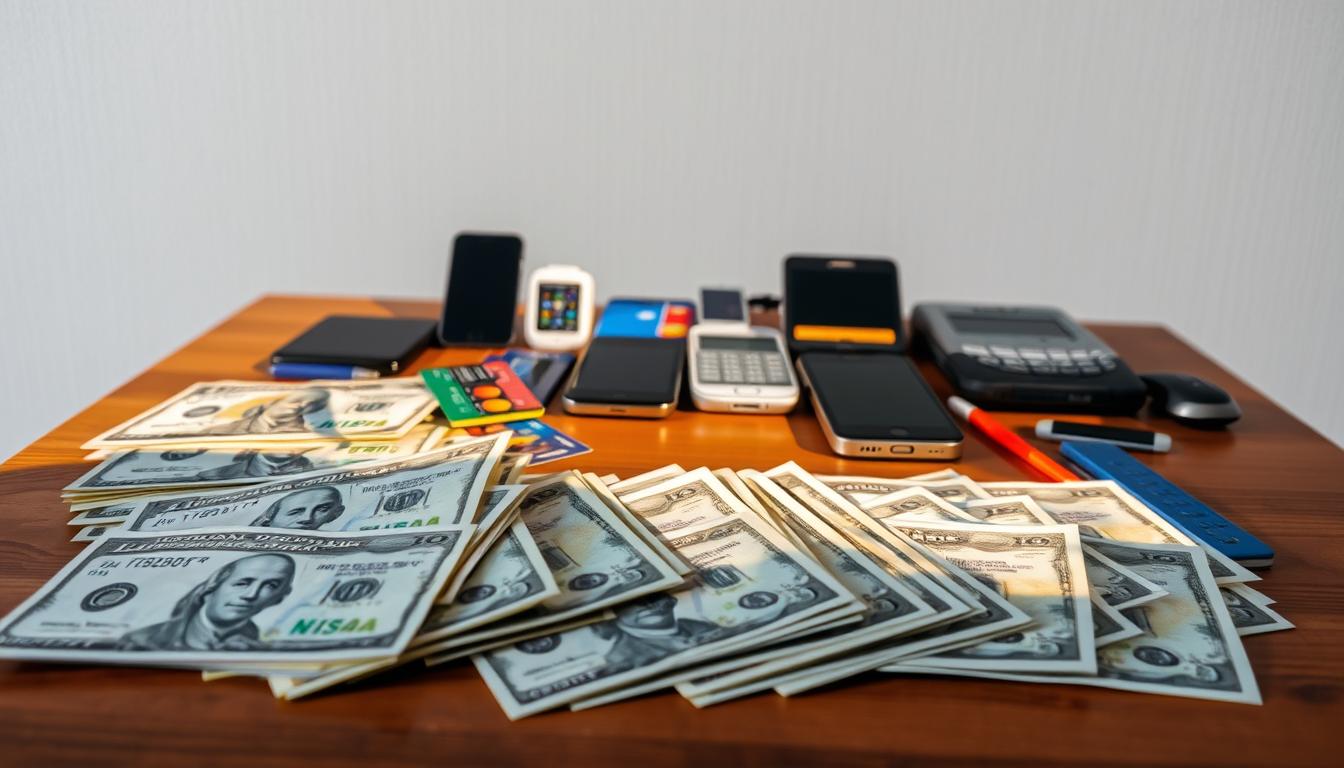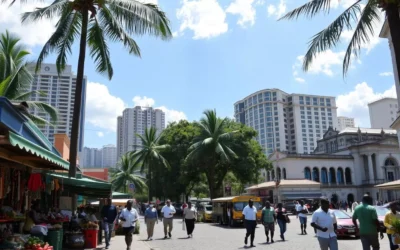✓ Accommodations✓ Flights✓ Rental Cars
Did you know that over 90% of transactions in Liberia are still conducted in cash? This surprising fact highlights the importance of understanding how to manage your money when visiting this vibrant country. Whether you’re planning a short trip or an extended stay, knowing the ins and outs of local payment methods can save you time and hassle.
In Liberia, the Liberian dollar (LRD) is the official currency, but the U.S. dollar is also widely accepted. For smaller purchases, especially outside the capital, having local cash is essential. However, carrying large amounts of cash can be risky, so it’s wise to explore other options like multi-currency travel cards.
Travel cards, such as the Wise Multi-Currency Card, offer a convenient way to handle your finances. They allow you to exchange USD to LRD at competitive rates and make payments or withdrawals with minimal fees. Plus, having a digital account lets you manage your money on the go, ensuring you’re always prepared for your next adventure.
Stay tuned as we dive deeper into the best payment methods, tips for avoiding unnecessary fees, and how to make the most of your travel budget in Liberia.
Overview of Liberia’s Currency & Payment Landscape
Navigating the financial landscape in Liberia can be straightforward with the right preparation. The country primarily uses the Liberian dollar (LRD) for everyday transactions, but the U.S. dollar is also widely accepted, especially in urban areas. Understanding how to balance these two currencies is essential for a smooth experience.
Understanding the Liberian Dollar and Local Currency
The Liberian dollar is the official currency, and it’s used for most local purchases. Smaller denominations are handy for everyday expenses like transportation or street food. While USD is accepted in some places, having LRD ensures you’re prepared for all situations, especially in rural areas.
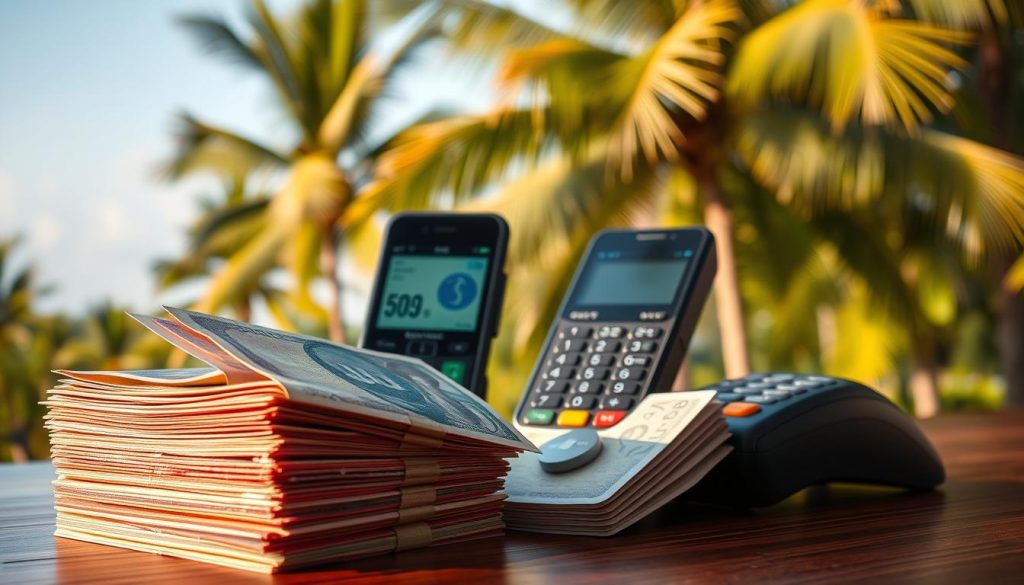
Cash, Card, and Mobile Payment Options
Cash remains the dominant payment method, but digital solutions are gaining traction. Mobile money services are becoming popular, offering a convenient way to transfer funds or pay for goods. Cards like Visa and credit cards are accepted in larger establishments, but it’s wise to carry cash for smaller vendors.
Currency Exchange and ATM Availability
ATMs are available in major cities, but they may charge fees for withdrawals. It’s best to exchange money at banks or authorized exchange bureaus to avoid high fees. Planning ahead ensures you have the right mix of cash and digital options for your trip.
Liberia: Ultimate Travelers Guide to Currencies & Payments
Choosing the right card for your trip can make managing your money easier and safer. Prepaid, debit, and credit cards each have unique features that suit different travel needs. Understanding these options helps you pick the best one for your journey.
Prepaid Cards
Prepaid cards are a great choice for budget-conscious travelers. You load a specific amount onto the card, which helps you avoid overspending. Cards like the Wise Multi-Currency Card allow you to convert USD to local currency at mid-market rates, saving you on exchange fees.
Debit Cards
Debit cards linked to your bank account offer convenience but may come with high ATM fees abroad. Make sure to check your bank’s international withdrawal fees before using your card. Some travel-friendly banks, like Chime, offer low or no fees for overseas transactions.
Credit Cards
Credit cards provide added security and rewards but often charge foreign transaction fees. Look for cards with no annual fees or travel perks. Visa and Mastercard are widely accepted, but always carry cash as a backup.
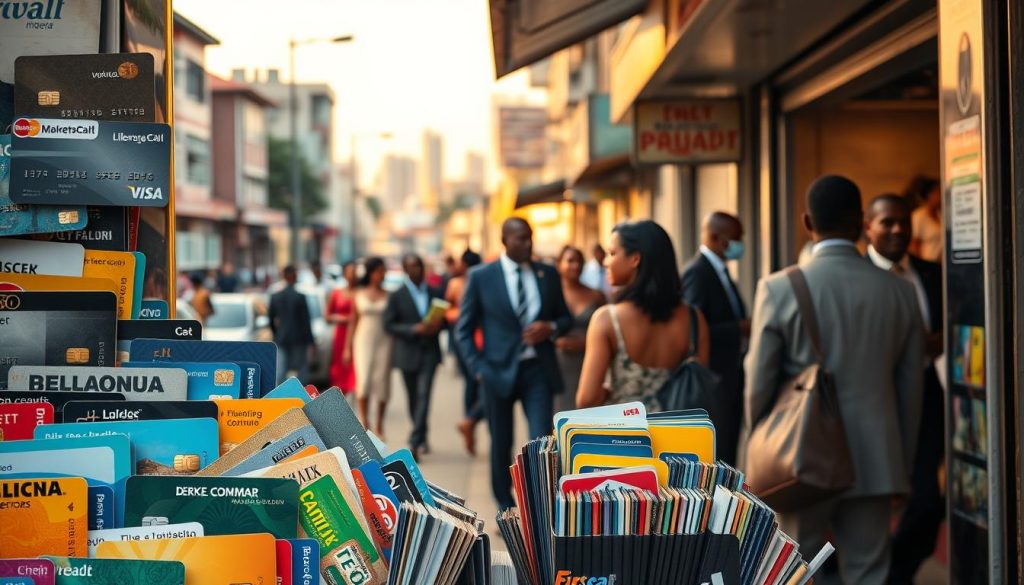
Benefits of Using a Travel Money Card
Travel money cards like Wise and Chime simplify your trip. They offer low fees, secure spending, and easy currency exchange. These cards also reduce the risk of carrying large amounts of cash, making them a safer option.
Applying for a travel card is straightforward. Most providers allow you to sign up online or via phone. Make sure to have your identification documents ready for a smooth application process.
By comparing these options, you can choose the card that best fits your travel style and budget. Whether it’s a prepaid, debit, or credit card, the right choice ensures a hassle-free experience.
Optimizing Your Travel Money Cards for Secure Spending
Managing your finances while traveling doesn’t have to be stressful. With the right travel card, you can avoid unnecessary fees, keep your money secure, and enjoy peace of mind. Let’s explore how to optimize your card usage for a hassle-free trip.
Top Travel Cards for U.S. Travelers
Several travel cards stand out for their convenience and cost-effectiveness. The Wise Multi-Currency Card supports over 40 currencies and offers mid-market exchange rates, saving you on conversion fees. Chime is another great option, with no foreign transaction fees and a daily ATM withdrawal limit of $500.
Monzo is ideal for those who prefer no ATM withdrawal fees, though operator fees may apply. If you’re looking for a prepaid option, Netspend offers flexibility, though some cards come with monthly fees. Each card has unique benefits, so choose one that aligns with your travel needs.
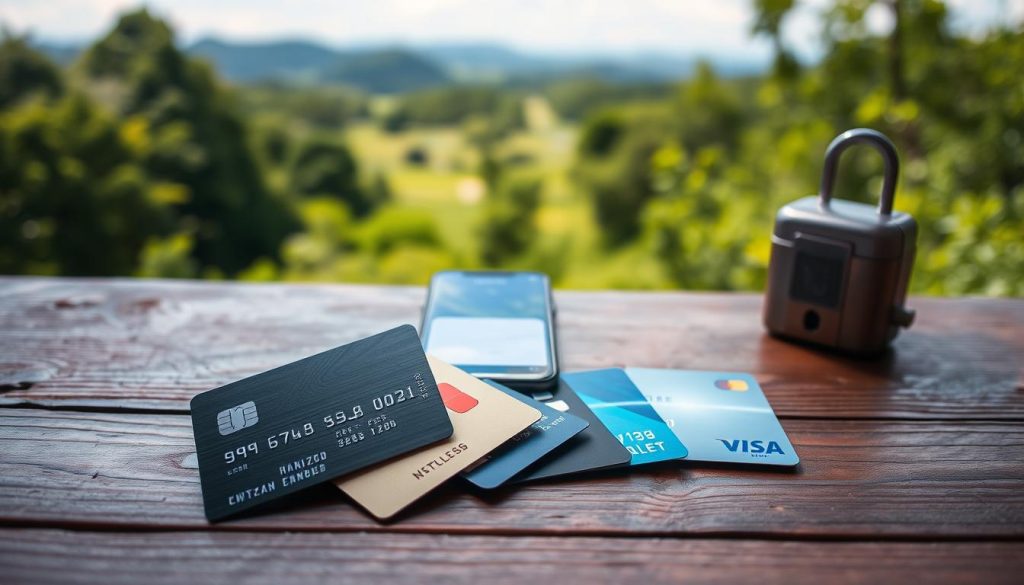
Features, Fees, and Benefits Comparison
When comparing cards, focus on features like ATM fees, exchange rates, and recurring costs. For example, Wise allows free ATM withdrawals monthly, while Chime has no foreign transaction fees. Monzo’s lack of ATM fees makes it a budget-friendly choice, but always check for operator fees.
Consider extra benefits like travel insurance or fee waivers when using the card overseas. Some providers, like Wise, also offer instant alerts and two-factor authentication to secure your account. These features ensure your money stays safe while you travel.
Step-by-Step Application Process
Applying for a travel card is simple. Start by visiting the provider’s website or app. For Wise, you’ll need to sign up online, verify your identity, and pay a one-time delivery fee of $9. Chime cards typically arrive in 7-10 days, while Monzo and Netspend offer easy online applications.
Make sure to have your identification documents ready for verification. Once approved, load your card with funds and activate it before your trip. With these steps, you’ll be ready to manage your money securely and efficiently while traveling.
Practical & Safety Tips While Managing Money Abroad
Keeping your money safe while traveling is easier than you think with the right precautions. Whether you’re exploring bustling cities or remote areas, a few simple steps can ensure your funds stay secure and accessible.
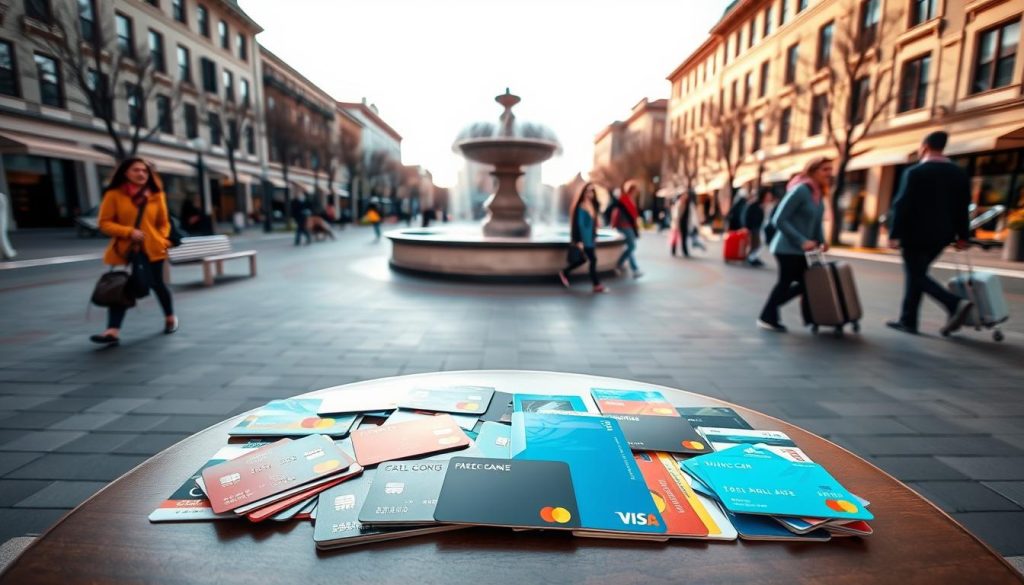
Security Measures and Travel Insurance Advice
One of the best ways to protect your finances is by using a travel money card. These cards reduce the need to carry large amounts of cash, lowering the risk of theft. Always monitor your account activity regularly and report any suspicious transactions immediately.
Travel insurance is another essential safeguard. It can cover unexpected losses, such as stolen cards or emergency medical expenses. Look for policies that include financial protection for added peace of mind.
Navigating Local Payment Systems Safely
When using ATMs, choose machines located inside banks or hotels for added security. Avoid withdrawing cash at night, and always shield your PIN. Minimize fees by checking your bank’s international withdrawal policies before your trip.
For local payments, carry small denominations of the local currency. This is especially useful for tipping at markets or restaurants. If you’re unsure about exchange rates, use a card with no foreign transaction fees to avoid extra costs.
By following these tips, you can manage your money confidently and focus on enjoying your trip. Stay prepared, stay safe, and make the most of your travel experience.
Conclusion
Handling your finances abroad doesn’t have to be complicated with the right tools and knowledge. Using a dedicated travel card ensures secure and cost-effective spending, especially in areas where cash is king. Compare options like Wise and Chime for low fees, competitive exchange rates, and robust security features.
When managing payments, carry a mix of local currency and USD for flexibility. Use ATMs in secure locations and always monitor your account for safety. Verify details like application processes and fee structures before choosing a provider.
Understanding local systems and preparing accordingly will enhance your travel experience. With these tips, you’re well-equipped to handle financial transactions confidently and focus on enjoying your journey.
The above is subject to change.
Check back often to TRAVEL.COM for the latest travel tips and deals.
